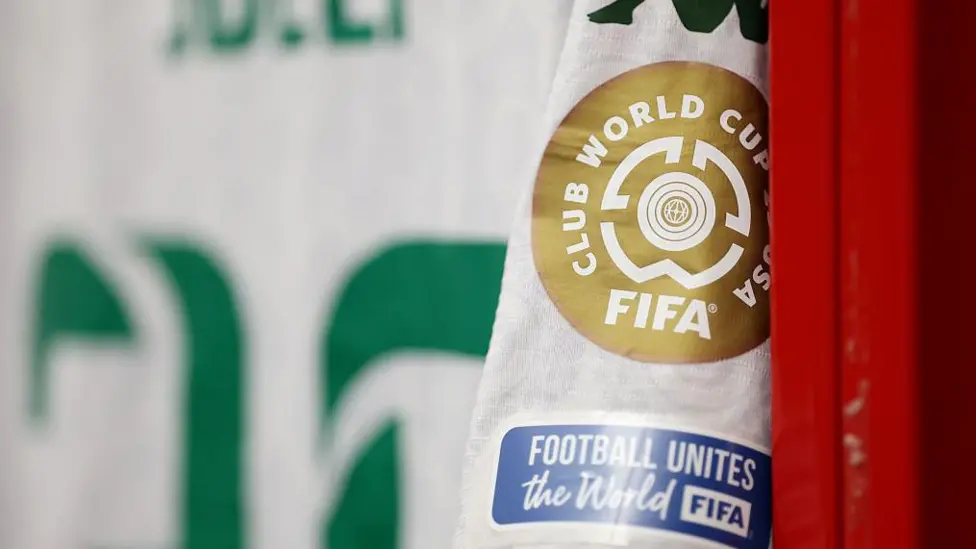Fifa has come under fire from campaigners and human rights groups for its apparent decision to downplay anti-racism messaging during the recent Club World Cup held in the United States. This has raised questions about whether the shift is linked to the political climate in the host country, particularly the policies introduced by US President Donald Trump.
In previous tournaments such as the Qatar 2022 World Cup, Fifa prominently supported anti-discrimination efforts, including the use of “no discrimination” armbands worn by players. Furthermore, Fifa recently introduced a revised disciplinary code aimed at combating racism more effectively through stricter bans and heavier financial penalties.
However, the 2024 Club World Cup has seen a noticeable absence of direct anti-racism messaging during matches. Instead, Fifa promoted a broader campaign titled “Football Unites the World,” which focuses on the unifying power of football but lacks explicit emphasis on fighting discrimination and racism.
Reports from The Athletic revealed that Fifa had prepared promotional material for a dedicated anti-racism campaign for the tournament but ultimately chose not to use it. The governing body has yet to officially comment on this decision.
Piara Powar, executive director of the campaign group Fare, expressed disappointment at the lack of clear anti-discrimination messaging during the Club World Cup. “It is disappointing that it appears there will be no anti-discrimination messaging throughout the tournament,” Powar said. “Such messaging has historically been well received by supporters, players, and civil society. It’s more than a shame that a message of inclusion can’t be broadcast to the world, especially without informing key stakeholders.”
Powar suggested that the volatile political environment in the United States, where President Trump has moved to dismantle diversity, equity, and inclusion (DEI) programs, might have influenced Fifa’s approach. Since taking office in January, Trump’s administration has directed federal agencies and several large corporations to end or scale back DEI initiatives, raising concerns about the broader social climate.
In response, a Fifa spokesperson highlighted the organization’s commitment to fighting discrimination and racism. “’Football Unites the World’ is Fifa’s main global campaign, displayed in all Club World Cup stadiums and on Fifa’s social platforms,” the spokesperson said. “We have a firm, zero-tolerance stance against all forms of discrimination and racism.”
The statement further emphasized the enforcement of Fifa’s anti-discrimination protocols during the Club World Cup, including the three-step procedure empowering referees to take escalating actions against discriminatory behavior by fans or participants. Additionally, Fifa’s social media protection service continues to support clubs, players, and officials.
Evan Whitfield, chair of the Human Rights Soccer Alliance (HRSA), a US-based coalition of former players, lawyers, and grassroots groups, criticized Fifa’s apparent retreat from explicit anti-racism messaging. “Soccer exists in a space where values of non-discrimination and inclusion are clear, but they need to be consistently underlined to the world,” Whitfield said. “A basic message like ‘football unites the world’ doesn’t communicate the urgency of combating racism clearly enough.”
Whitfield stressed that Fifa should maintain consistent messaging regardless of the host nation’s political climate. “If Fifa can have strong anti-racism campaigns in countries like Russia, Qatar, New Zealand, and Australia, the same standard should apply in the United States. This is a global soccer issue, not one dictated by politics.”
The timing of this controversy coincided with a powerful gesture from Los Angeles-based Angel City FC, who wore shirts reading “Immigrant City Football Club” before their National Women’s Soccer League game against North Carolina. This was a statement of solidarity amid ongoing immigration raids and protests in the city, underscoring football’s role in community and social issues.
Anti-discrimination group Kick It Out expressed concern over Fifa’s decision, calling for the governing body to reconsider. “Fifa’s apparent decision to drop its anti-discrimination messaging at the Club World Cup is worrying, especially after recent campaigns highlighting its importance,” Kick It Out said in a statement. “Football has unique power to bring communities together, and visibility of Fifa’s anti-discrimination campaigns while the world is watching is crucial.”
As the global football community prepares for the next World Cup, questions remain about how Fifa will balance its campaigns against discrimination with the political realities of host countries. Campaigners urge Fifa to uphold consistent, strong anti-racism messaging to reinforce football’s role as a force for inclusion worldwide.



